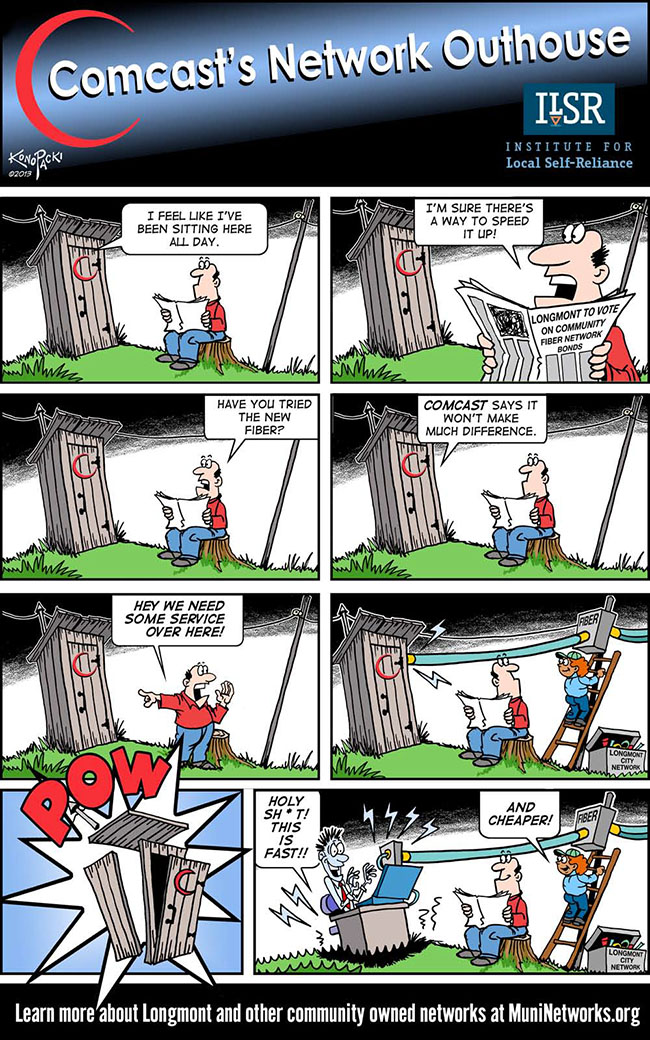
Fast, affordable Internet access for all.


In September, I joined the keynote lunch panel at the annual NATOA Conference to discuss what local governments can do to improve Internet access. Joanne Hovis moderated a discussion between Rondella Hawkins of City of Austin, Milo Medin of Google, and myself.
I have embedded the video below so it starts with the panel discussion. However, if you go back to the beginning, you will also be able to watch the annual award presentations, including one to Longmont in Colorado, as well as Milo Medin's 10 minute presentation prior to this panel discussion.
We discuss many important issues, particularly the various actions local governments can take to either build their own networks or to make the community more tempting to others who might build a network.
 Download this comic as a pdf. Sign up for our one-email-per-week newsletter with ongoing coverage of community owned networks.
The local newspaper notes that some local businesses have already signed on, including a clinic:
Download this comic as a pdf. Sign up for our one-email-per-week newsletter with ongoing coverage of community owned networks.
The local newspaper notes that some local businesses have already signed on, including a clinic:
Jurey said the city's network is three times faster than the speeds the clinic got before at a cost savings of $1,600 a month.On November 5, citizens will decide a referendum on whether to expedite the building by issuing revenue bonds without increasing local taxes. A brochure explaining pro and con is available here [pdf]. Approving the bonds means building the network to everyone in a few years while not approving it will mean building the network over several decades. We recently did a podcast with Longmont Power and Communications Broadband Services Manager Vince Jordan and a local citizen campaigning for the referendum. Listen to that show here. Read the rest of our coverage about Longmont here.
We have followed happenings in Opelika, Alabama, for three years as the community investigated the benefits of a fiber network. They contended with a Charter misinformation campaign and voted yes on a referendum. Construction began in 2012, Opelika Power Services (OPS) tested the network, and recently the Opelika City Council approved proposed rates.
OANow.com now reports that the FTTH network and smart grid project is ever-so-close to offering triple play services to the city's 28,000 residents and local businesses.
OPS offers three standard bundled plans, but customers can also customize. All three include voice:
Data offerings for customized plans range from 10/5 Mbps for $34.95 to 1 Gbps symmetrical for $499.95.
During the summer, I spent two days in Glasgow, Kentucky, to learn about the first municipal broadband network in the country. I believe it also became the first community in the US to have broadband access available universally within the town.
Working with the Media Working Group, we recorded several interviews with people there, including a lot of time with Electric Power Board Superintendent Billy Ray. Billy Ray has been a key proponent of local self-reliance and a pioneeer of community owned networks.
Below, we pulled out a few snippets of our interview talking about the origins of the Glasgow network. All of our stories about Glasgow are available here.

Anyone looking for a short introduction to community owned networks should start with this brief animated video. Please share it around - embed in Facebook, blogs, whatever. We have this and other informative videos archived here.
